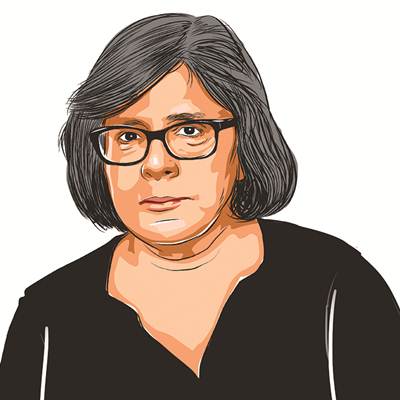Opinion Pakistan Spring vs Army’s shadow
Something is clearly changing in Pakistan. What brought about this spring and whether it will succeed in changing Pakistan's destiny is anybody's guess
 Something is clearly changing in Pakistan. One is tempted to ask if it’s the beginning of a ‘Pakistan Spring’. What brought about this spring and whether it will succeed in changing Pakistan’s destiny is anybody’s guess. Reuters/File
Something is clearly changing in Pakistan. One is tempted to ask if it’s the beginning of a ‘Pakistan Spring’. What brought about this spring and whether it will succeed in changing Pakistan’s destiny is anybody’s guess. Reuters/File The “dramatic” arrest of former Prime Minister Imran Khan within the premises of Islamabad High Court on May 9 led to massive protests across Pakistan. For the first time, violent mobs, including workers of Pakistan Tehreek e- Insaaf, attacked army and paramilitary installations across Khyber Pakhtunkhwa (KPK), Punjab, Balochistan and major cities of Pakistan. The army was not targeted even in the wake of 1971 liberation of Bangladesh, military coups or even post the assassination of popular leaders such as Benazir Bhutto. Such has been the public fear of the army.
Something is clearly changing in Pakistan. One is tempted to ask if it’s the beginning of a “Pakistan Spring”. What brought about this spring and whether it will succeed in changing Pakistan’s destiny is anybody’s guess. In fact, “status quoists” may exploit the harsh realities the country is facing today — economic crisis, for instance — to crush the spring. That said, the events panning out in Pakistan, coupled with the humanitarian crisis in Afghanistan, are a cause of concern.
Many believe that the Pakistan army will stand united in the face of such open hostility. Some also believe that Khan, a “beneficiary” of the army’s patronage in the past, has become opportunistic and destructive by tapping into the anti-army sentiment among the public. They argue that the army’s image of being a “glue” that keeps the country together would prevail and the chaos would end if firm action is taken against Khan.
However, the dynamic churn within Pakistan is also a reflection of the geopolitical reality beyond its borders. First and foremost, since the withdrawal of US troops, the army has been under siege. The emboldened Tehreek-e-Taliban Pakistan (TTP) and Baloch groups mounted over 850 attacks against the armed forces last year. This year, three attacks on an average have been reported every day across KPK, Balochistan and big cities. Hundreds of policemen, paramilitary personnel and senior army officers have been killed. Army operations are continuing but there is no respite in sight. The TTP is expanding its footprint across Balochistan and Punjab.
Frequent clashes with the Taliban along the Afghanistan border have been reported. The Pakistan embassy and a hotel frequented by the Chinese in Kabul came under serious attack last year. Pakistan defence minister’s repeated threats to the Taliban that it withdraw support to the TTP have been ignored. The army, which boasted of deep strategic depth in Afghanistan, is practically fighting a two-front war and keeping a tight watch on the Iran border. The aura of the army playing a smart proxy game has faded with the Taliban becoming a threat. This has taken the sheen off its standing as a guarantor of security and safety of Pakistan.
The two provinces crucial for CPEC, KPK and Balochistan, have become battle grounds for security forces. The army’s steadfast backing of CPEC has brought it to the centre of rising public resentment against Chinese investments. The sentiment is so perceptible that following his recent visit to Pakistan, the Chinese foreign minister stressed that some forces had fabricated the rumour that China created a “debt trap” in Pakistan.
Apart from the social media campaigns of the TTP and Baloch groups, street mobilisations after the ouster of Khan have made the army vulnerable. The army today is politically much weaker and deeply trapped in internal and external security challenges. It appears divided on the issue of operations in KPK and Balochistan. Talks with the TTP are unlikely to succeed and there is no effort to reach out to estranged Baloch groups. The army does not seem to have the bandwidth to indulge in political misadventures without inviting serious backlash.
It appears Khan got a sense of the new reality before others and used recent developments, including the attempt on his life and his arrest, to further build his cult by taking on the army. The army’s diminished stature became visible on May 9, when protesters could access even GHQ with some persuasion. Violent mobs targeted the Corp Commander’s house in Lahore, the Pakistan Military Academy at Abbottabad, the air force base in Miawali, and army patrols in cities.
In view of Khan’s release by the Supreme Court and his insistence that the army is stalling elections, it is possible that international forces may intervene to ensure that Pakistan does not become unstable. The instability is Afghanistan is deeply impacting Pakistan and the instability in Pakistan could in turn further destabilise Afghanistan. The growing instability in the Af-Pak region could spill over in no time.
Meanwhile, there is talk of military courts being set up to try violent mobs, Khan being given the option to either go to jail or to London, the ruling PDM throwing its hat into the ring and higher judiciary becoming proactive. The battles have just begun, and nobody is likely to win this internal war anytime soon. A great deal, however, could depend upon common people, global powers like the US and China and events in Afghanistan.
The writer is an IPS officer. Views are personal



